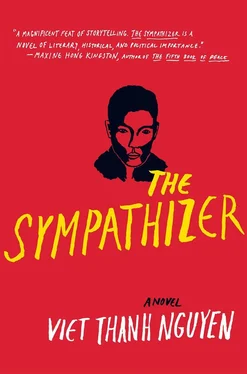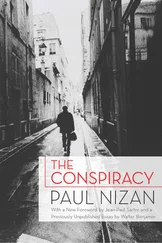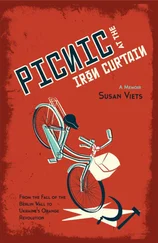I’m suffering now, I said. Please, just let me go to sleep.
We’re revolutionaries, my friend. Suffering made us. Suffering for the people is what we chose because we sympathized so much with their suffering.
I know all this, I said.
Then listen to me. The chair scraped and his voice, already high above me, rose even higher. Please understand. I do this to you because I am your friend and your brother. Only without the comfort of sleep will you fully understand the horrors of history. I tell you this as someone who has slept very little since what has happened to me. Believe me when I say that I know how you feel, and that this has to be done.
I was already afraid, but his prescription of my treatment magnified my fear even more. Somebody must have something done to him! Was I that somebody? No! That cannot be true, or so I wanted to tell him, but my tongue refused to obey me. I was only mistaken to be that somebody, because I was, I told him, or thought I did, a nobody. I am a lie, a keeper, a book. No! I am a fly, a creeper, a gook. No! I am — I am — I am—
The chair scraped again and I smelled the distinct, gamy odor of the baby-faced guard. A foot nudged me and I trembled. Please, Comrade, I said. Just let me sleep. The baby-faced guard snorted, nudged me once more with his horny foot, and said, I’m not your comrade.
The prisoner had never known that he needed a respite from history, he who had committed his adult life to its hot pursuit. His friend Man had introduced him to the science of history in the study group, its chosen books written in scarlet letters. If one understood history’s laws, then one could control history’s chronology, wresting it away from capitalism, already intent on monopolizing time. We wake, work, eat, and sleep according to what the landlord, the owner, the banker, the politician, and the schoolmaster command, Man had said. We accept that our time belongs to them, when in truth our time belongs to us. Awaken, peasants, workers, colonized! Awaken, invisible ones! Stir from your zones of occult instability and steal the gold watch of time from the paper tigers, running dogs, and fat cats of imperialism, colonialism, and capitalism! If you know how to steal it, time is on your side, and numbers are, too. There are millions of you and only thousands of them , the colonizers, compradors, and capitalists who have persuaded the wretched of the earth that capitalist history is inevitable. We, the vanguard, must convince the dark peoples and subterranean classes that communist history is inevitable! The exhaustion of the exploited will inevitably lead them to revolt, but it is our vanguard that speeds up the time toward that uprising, resets the clock of history and rings the alarm clock of revolution. Ticktock — ticktock — ticktock—
Fixed on his mattress, the prisoner — no, the pupil — understood that this was the study group’s final session. To be a revolutionary subject he must be a historical subject who remembered all, which he could do so only by being fully awake, even if being fully awake would, eventually, kill him. And yet if he could but sleep, he would understand better! He writhed, he wriggled, he wrestled with himself in his failed bid for sleep, and this may have gone on for hours, or minutes, or seconds, when, all of a sudden, his hood was removed, followed by his gag, allowing him to gasp and suck in air. His captor’s rough hands plucked away his muffs and earplugs and, lastly, untied the blindfold chafing against his skin. Light! He could see, but just as quickly he had to shut his eyes. Suspended over him were dozens — no, hundreds of lightbulbs, planted in the ceiling and blinding him with their collective wattage, their glare radiating through the red filter of his eyelids. A foot pushed against his temple and the baby-faced guard said, No sleeping, you. He opened his eyes to the glowing hot mass of bulbs arranged in an orderly grid, their intense light revealing an examination room whose walls and ceiling were plastered in white. The floor was cement painted white, and even the iron door was painted white, all in a chamber roughly three meters by five. The baby-faced guard in his yellow uniform stood at attention in the corner, but the three others in the room stood at the edges of his mattress, one to either side and another at his feet. They were dressed in white lab coats and sea-green medical scrubs, hands behind their backs. Surgical masks and stainless steel goggles hid their faces, all six orbital lenses focused on him, who was now clearly not only prisoner and pupil but also patient.
Q. Who are you?
The man to his left asked the question. Didn’t they know who he was by now? He was the man with a plan, the spy with an eye, the mole in the hole, but his tongue had inflated itself to fill his entire mouth. Please, he wanted to say, let me close my eyes. Then I’ll tell you who I am. The answer is on the tip of my tongue — I am the gook being cooked. And if you say I am only half a gook? Well, in the words of that blond-haired major tasked with counting the communist dead after the battle for Ben Tre, confronted with the mathematical problem of a corpse whose remains included only his head, chest, and arms: half a gook is still a gook. And since the only good gook is a dead gook, as the American soldiers liked to say, it must be that this patient was one bad gook.
Q. What are you?
This came from the man to his right in the commandant’s voice. On hearing this voice, the patient lunged against his ropes until they burned his flesh, the question inciting a red flare of silent rage. I know what you’re thinking! You think I’m a traitor! A counterrevolutionary! A bastard who belongs nowhere, not to be trusted by anyone! The rage subsided just as suddenly into despair, and he wept. Would his sacrifices never be honored? Would no one ever understand him? Would he always be alone? Why must he be the man to whom things are done?
Q. What is your name?
It was the man at the end of the mattress, speaking in the commissar’s voice. An easy question, or so he thought. He opened his mouth, but when his tongue would not move, he shrank in fright. Had he forgotten his name? No, impossible! He had given himself his American name. As for his native name, his mother, the only one who understood him, had given it to him, his father no help, his father who never called him son or by his name, even in class simply calling him you . No, he could never forget his name, and when at last it came to him, he freed his tongue from its gummy bed and said it aloud.
The commissar said, He can’t even get his name right. Doctor, I think he needs the serum, to which the man on the patient’s left said, Very well, then. The doctor brought his hands from behind his back, gloved to the forearms in white rubber, one hand with an ampule the size of a rifle cartridge, the other with a needle. With a smooth stroke, the doctor drew a clear liquid from the ampule into the needle, then crouched by the patient’s side. When he shuddered and twitched, the doctor said, One way or another I’ll inject you, and if you move, it will be worse for you. The patient stopped thrashing and the prick in the crook of the elbow was almost a welcome relief, another kind of feeling than the hallucinatory urge for sleep. Almost, but not quite. Please, he said, turn off the lights.
The commissar said, That we cannot do. Don’t you see that you must see? The commandant snorted. He will never see, not with all the light in the world. He’s been underground too long. He’s fundamentally blind! Now, now, said the doctor, patting the patient’s arm. Men of science must never give up hope, least of all when operating on the mind. As we can neither see nor touch his mind, all we can do is help the patient see his own mind by keeping him awake, until he can observe himself as someone else. This is most crucial, for we are the ones most able to know ourselves and yet the most unable to know ourselves. It’s as if our noses are pressed up against the pages of a book, the words right in front of us but which we cannot read. Just as distance is needed for legibility, so it is that if we could only split ourselves in two and gain some distance from ourselves, we could see ourselves better than anyone else can. This is the nature of our experiment, for which we need one more device. The doctor pointed to a brown leather satchel on the floor that the patient had not noticed but immediately recognized, a military field telephone, the sight of which made him tremble again. The Soviets provided the serum that will compel our patient to tell the truth, the doctor said. This other component is American. You see the look in our patient’s eyes? He remembers what he has seen in those interrogation rooms. But we will not be wiring him via nipple and scrotum to the battery terminals on the phone’s generator. Instead — the doctor reached into the satchel and extracted a black wire — we clip this to a toe. As for the hand crank, it generates too much electricity. We do not want pain. We do not torture. All we want is enough stimulus to keep him awake. Thus I have modified the electrical output and wired the phone to this. The doctor held up a wristwatch. Every time the second hand crosses twelve o’clock, a brief spark travels to the patient’s toe.
Читать дальше












